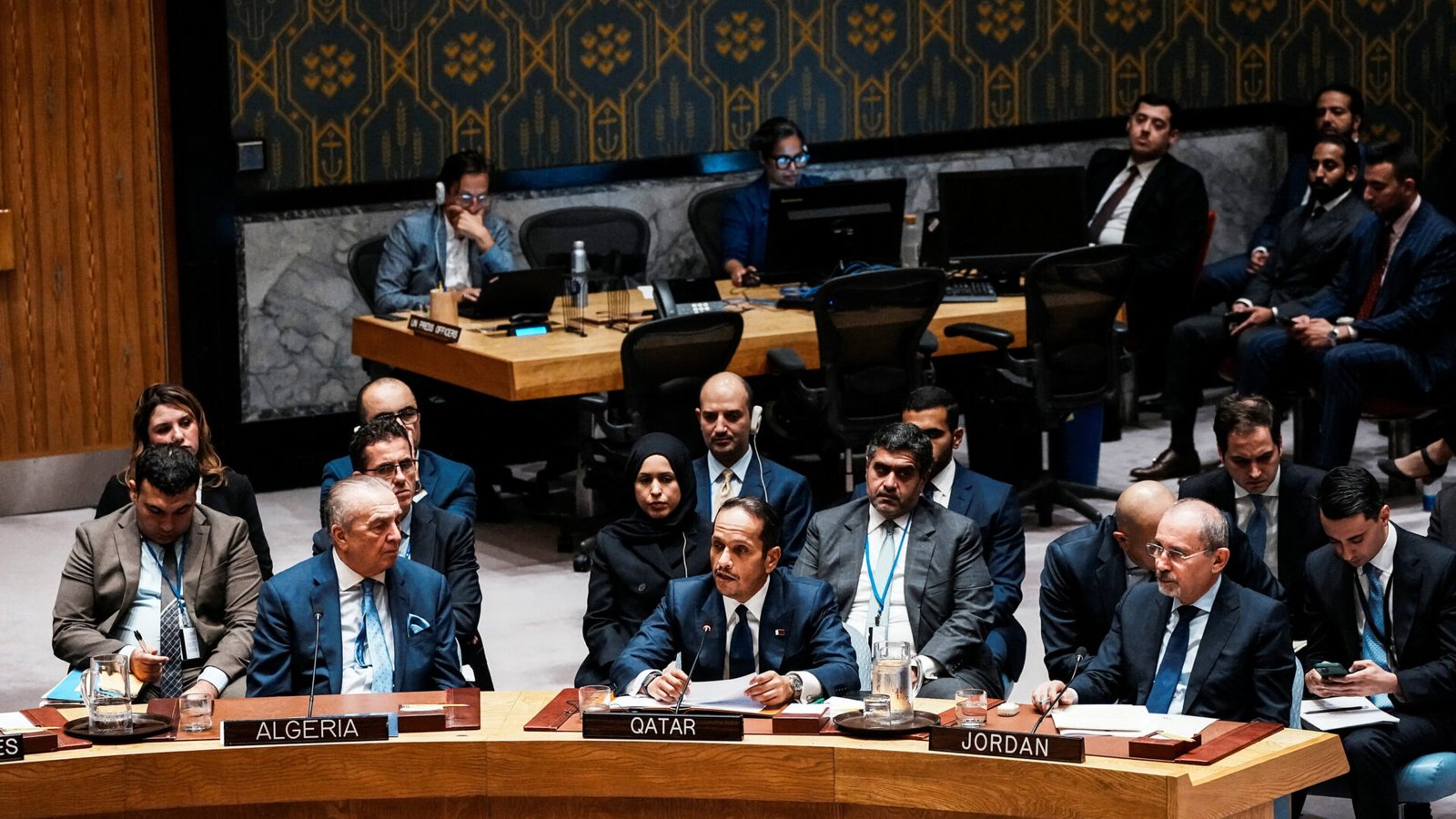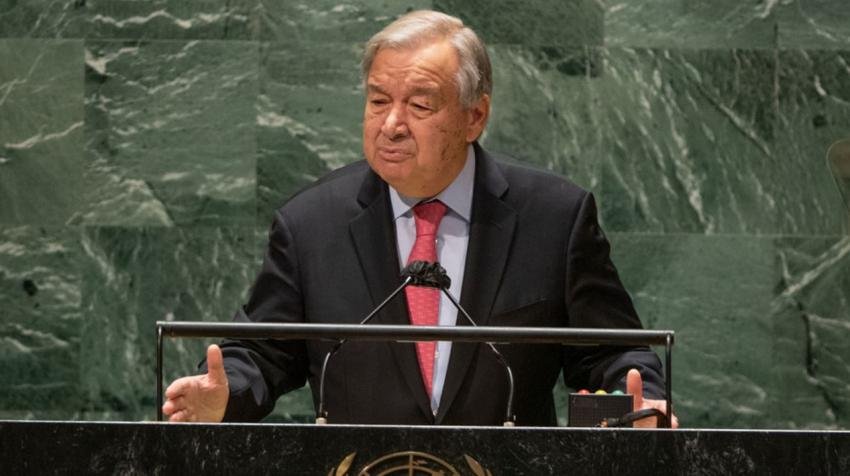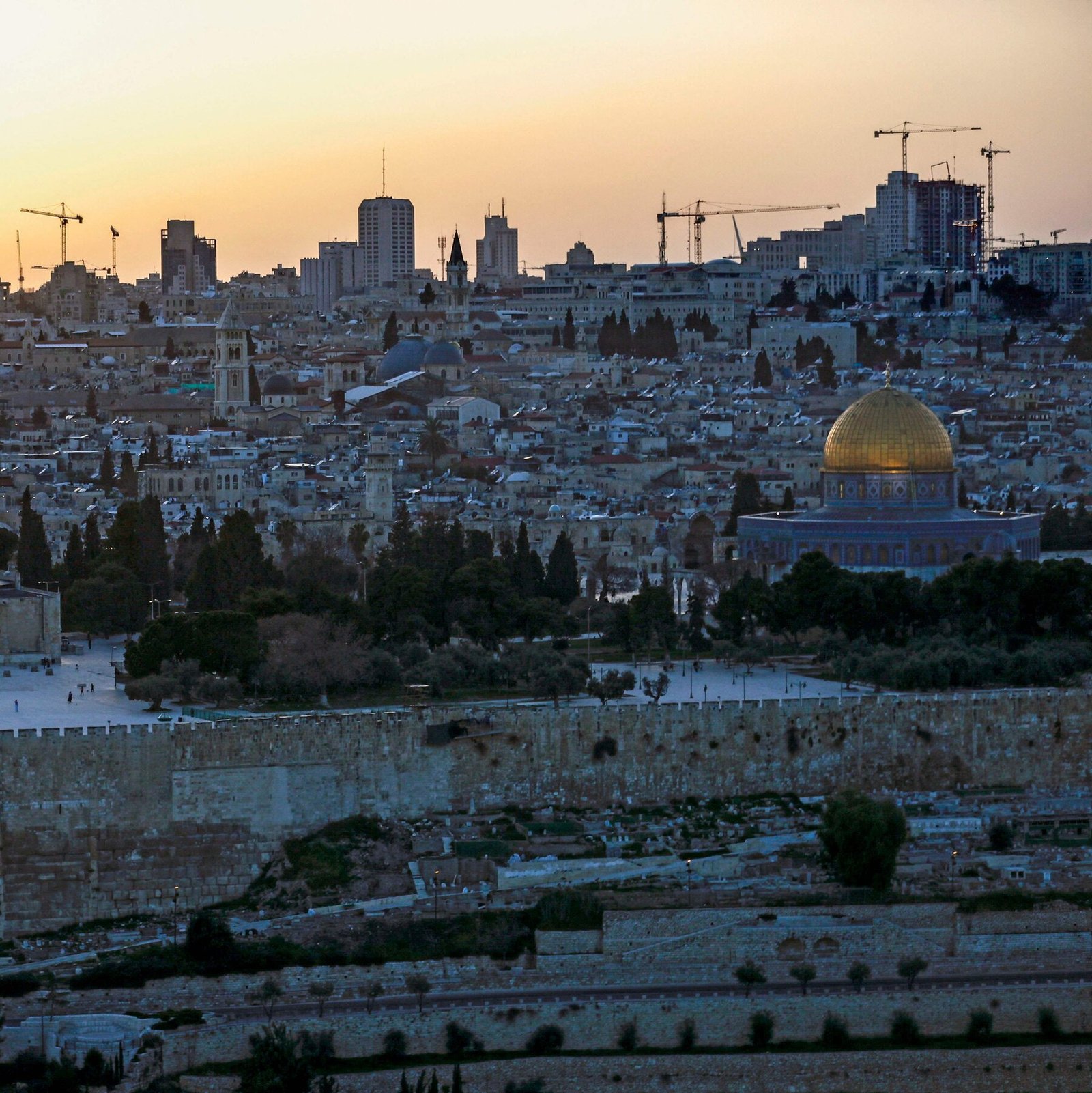Condemnation of the Doha Strikes
On September 9, the Security Council convened to address the alarming situation following the strikes in Doha, which have raised serious concerns regarding regional stability. The Council members unanimously condemned these military actions, recognizing their potential to exacerbate tensions not only within Qatar but also in the broader Middle Eastern context. This condemnation highlights the Security Council’s commitment to upholding peace and security, and it reflects a collective sense of outrage towards violations of sovereignty and international law.
The strikes against Doha, a city known for its pivotal role in mediating regional conflicts, pose significant threats to its stability and diplomatic relationships. Qatar has consistently acted as a neutral ground for dialogue among conflicting parties in various disputes, including those in Syria and Yemen. Such military aggression undermines Qatar’s position and efficacy as a peace mediator, disrupting ongoing efforts to broker dialogue and reconciliation. The strikes not only affect Qatar but also reverberate throughout the region, influencing the dynamics of international relations and conflict resolution processes.
Furthermore, the Security Council emphasized that these acts of violence could escalate into broader conflicts, thereby endangering not just Qatari citizens but also international interests and allies engaged in the area. It reiterated the critical necessity for all parties to adhere to diplomatic channels and to maintain respect for national sovereignty, emphasizing that dialogue should precede military intervention. The strikes are a stark reminder of the fragility of peace in the region and the importance of multilateral cooperation in addressing these security challenges.
In light of these developments, the Security Council’s swift condemnation serves as a call to action for the international community to reaffirm their support for Qatar and to encourage constructive dialogue to resolve disputes peacefully.
Regret for Civilian Casualties
The Security Council has expressed profound regret regarding the loss of civilian lives resulting from the recent military strikes in Doha. The tragic impact of these strikes serves as a stark reminder of the humanitarian consequences that often accompany armed conflicts. Civilian casualties not only represent a heartbreaking loss of life but also highlight the urgent need for adherence to international humanitarian law, which is designed to protect non-combatants during hostilities.
In conflict zones, civilians frequently find themselves caught in the crossfire, leading to devastating impacts on families and communities. The Security Council’s stance reflects a growing awareness of the necessity to prioritize the safety and security of non-combatants, reinforcing the fundamental principle that parties engaged in conflicts must take all necessary precautions to prevent harm to innocent lives. This underscores the importance of implementing strategies that minimize the risk to civilians and promote accountability for actions that violate international norms.
Furthermore, the humanitarian toll of military actions extends beyond immediate casualties. Survivors often face long-term consequences, including psychological trauma, loss of livelihood, and disruptions to essential services such as healthcare and education. These factors contribute to a cycle of suffering that can destabilize regions and hinder recovery efforts. The Security Council’s regret over civilian casualties serves as a call to action for all parties involved in conflicts to uphold their obligations under international law, particularly the Geneva Conventions, which stipulate the protection of civilians in times of war.
As the international community reflects on these recent events, it is crucial to reinforce the commitment to safeguarding human life, ensuring that humanitarian considerations remain at the forefront of military strategies. The loss of civilian lives is an issue that transcends borders and requires a collective response to foster peace and stability in affected regions.
Support for Qatar’s Sovereignty and Mediation Efforts
The recent expressions of solidarity from the Security Council in response to the strikes in Doha signify a profound recognition of Qatar’s sovereignty and its role in fostering stability in the region. Maintaining Qatar’s territorial integrity is not merely a political stance; it reflects the collective understanding that the nation’s stability is intertwined with regional peace. Qatar has consistently demonstrated its commitment to dialogue and mediation, often stepping in to address conflicts that may otherwise escalate.
In collaboration with key players such as Egypt and the United States, Qatar has positioned itself as a mediator in critical regional issues. This role is underscored by Qatar’s diplomatic initiatives aimed at resolving tensions and seeking common ground among disparate factions. By facilitating discussions, Qatar contributes to a broader stability that benefits not just itself but also neighboring nations facing similar challenges.
The Security Council’s acknowledgment of Qatar’s efforts is crucial, as it emphasizes the need for collaborative responses to crises. It highlights the understanding that no single nation can address complex geopolitical challenges alone; rather, a coordinated approach is required. Qatar’s long-standing engagement in peacekeeping and mediation aligns with international norms, reinforcing the importance of diplomacy over conflict.
Moreover, the Security Council’s stance acts as a deterrent against those who might seek to undermine Qatar’s sovereignty through acts of aggression. By standing united behind Qatar, the international community signals its commitment to uphold the principles of respect for national borders and self-determination. As we navigate these tumultuous times, the reinforcement of Qatar’s position as a mediator and supporter of peace is not only beneficial for the Gulf region but also serves as a model for global diplomacy.
Call for Peace and Diplomatic Initiatives
The recent escalation of violence following strikes in Doha has prompted the Security Council to urgently call for an immediate cessation of hostilities. The Council’s statement reflects collective concerns regarding the humanitarian conditions in Gaza, stressing the dire need to end the suffering experienced by civilians. In light of these developments, the release of hostages also remains a top priority, underscoring the imperative of prioritizing human rights amidst this conflict.
In pursuit of lasting peace, the active involvement of regional and international powers is more crucial than ever. Qatar, alongside Egypt and the United States, has been pivotal in facilitating various diplomatic endeavors aimed at de-escalating tensions. These nations are urged to intensify their efforts and collaborate closely with all stakeholders to promote productive dialogue. An inclusive approach, where all parties are encouraged to engage, is essential to lay the foundation for sustainable solutions that address the root causes of the conflict.
Moreover, it is essential for the international community to support these diplomatic initiatives, providing the necessary resources and platforms to enable fruitful negotiations. The Security Council emphasizes that dialogue, rather than violence, is the path forward. This sentiment not only resonates with the immediate crisis but also echoes a broader understanding of the complex dynamics within the region.
As the situation evolves, it is paramount that all entities work together to ensure that peace becomes the ultimate goal. The Security Council’s call for peace and the necessity of diplomatic initiatives serve as a reminder of the critical importance of collaboration and mutual understanding in the quest for stability in the region. In conclusion, the collective commitment to dialogue could pave the way for a more peaceful future for all affected communities.




